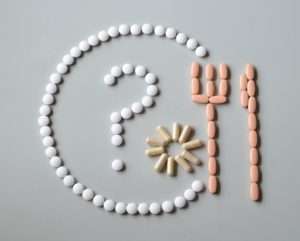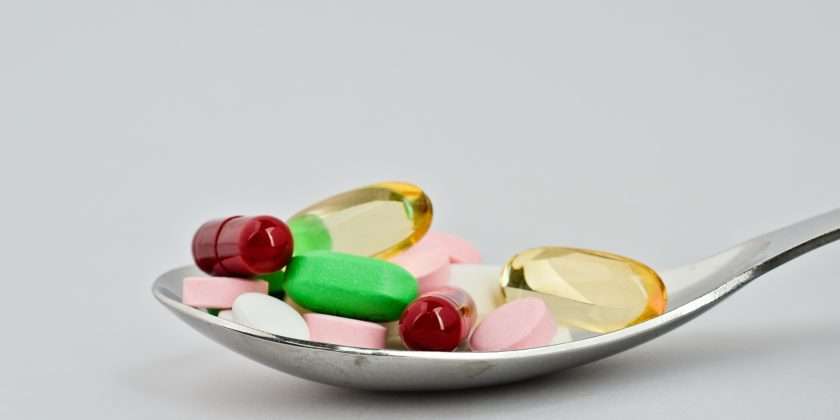MedlinePlus states that Cholesterol1 is a fat (also called a lipid) that your body needs to work properly. Too much bad cholesterol can increase your chance of getting heart disease, stroke, and other problems. The medical term for high blood cholesterol is lipid disorder, hyperlipidemia, or hypercholesterolemia. Jay Harold wrote a post, “High Blood Cholesterol: Info You Can Use,” that provides basic information about cholesterol. Over 10% of African Americans age 20 and older in the United States from 2015 to 2016 have high total cholesterol2 (240 mg/dL or more) older in the United States according to the Centers for Disease Control (CDC).
How do You lower My Cholesterol Levels?
You go to the gym faithfully and try to watch your diet. But after your annual physical, you find out that your blood cholesterol is surprisingly high. Your doctor calls you back to discuss taking a medication known as a statin.
Here are some commonly asked questions about cholesterol and statins.
1. What are statins? How do they work3 ?
Statins are a class of medicines used to lower cholesterol in the blood. Most of the cholesterol in your blood is made by the liver. Statins work by reducing the amount of cholesterol made by the liver and by helping the liver remove cholesterol that is already in the blood.
According to James P. Smith, M.D., M.S., deputy director of the Division of Metabolism and Endocrinology at the U.S. Food and Drug Administration (FDA), “An important first step is to have a discussion with your healthcare provider about your risk of having heart disease or a stroke, how a statin would reduce that risk, and any side effects that you should consider.”
2. Why is it important to keep cholesterol levels in the blood low?
Your body needs cholesterol, but too much of it in your blood can lead to buildup on the walls of your arteries (this buildup is called “plaque”), putting you at higher risk for heart disease and stroke. According to the Centers for Disease Control and Prevention (CDC), heart disease is the leading cause of death for both men and women in the United States.
3. I’ve heard about “good” and “bad” cholesterol. What’s the difference?
Cholesterol is carried in the bloodstream on different types of particles, called lipoproteins. The majority is carried on low-density lipoprotein (LDL) particles and is sometimes referred to as “bad” cholesterol, because high levels of LDL particles can lead to heart disease and stroke. High-density lipoprotein (HDL) particles, on the other hand, carry cholesterol back to the liver for removal from the body. Since people with higher levels of HDL-cholesterol tend to have a lower risk of heart disease, this is sometimes referred to as “good” cholesterol. Your healthcare provider should help you interpret what your numbers mean for your cardiovascular health.
4. I thought a healthy diet and regular exercise would keep my cholesterol in check. Not so?
“A heart-healthy diet, regular physical activity, and maintaining a healthy weight are all very important components of a lifestyle that can help lower cholesterol and reduce the risk of heart disease and stroke,” says Smith. “But other factors that are out of our control, such as genetics, also play a role. For many people, cholesterol simply cannot be lowered enough by lifestyle changes alone.”
For people who are at increased risk of having a heart attack or stroke, statins may be recommended even when cholesterol levels might not seem too high. “Statins have a well-established track record for reducing the risk for heart attacks and strokes,” Smith says. “Whether or not a statin is appropriate for a specific patient should involve a conversation between the patient and his or her healthcare provider.”
5. I’ve heard that there are some risks to taking statins. Should I be worried?

Statins are typically very well tolerated. Two risks that patients may be aware of are muscle-related complaints and an increased risk of developing type 2 diabetes. “Muscle complaints are quite common even among people not taking statins, so it is important to have your healthcare provider evaluate any symptoms before stopping your medication,” Smith explains. “It is rare for statins to cause serious muscle problems.”
Similarly, the risk of developing diabetes as a result of a statin is small. “The benefits of statins in reducing heart attacks and strokes should generally outweigh this small increased risk,” Smith says.
6. I’ve heard you shouldn’t drink grapefruit juice if you’re taking a statin. Is that true?
Grapefruit juice and fresh grapefruit can affect the way some medicines work. That’s true with certain statins, too—but only some of them. In addition, other medications can also interact with statins. Smith advises patients to ensure that their healthcare provider and pharmacist know about all the prescription and non-prescription medications they take.
Can statins prevent cancer4 ?
Animal research and ongoing observation of people who take statins suggest that these drugs may lower the risk of certain cancers, including colorectal and skin cancers. Statins’ known benefits in preventing cardiovascular disease, along with years of strong evidence that these agents are relatively safe, have led researchers to explore whether statins have the potential to prevent cancer. People should not take statins for cancer prevention outside of a clinical trial.
By exploring the effects of statins on the process of cancer at the molecular level, researchers have found that statins work against critical cellular functions that may help

What are the common side effects of statins?
Is the National Cancer Institute (NCI) supporting research testing whether statins might prevent colorectal cancer?
NCI’s Cancer Prevention Clinical Trials Consortia is developing a trial for people at increased risk for colorectal cancer who also have been found to have aberrant crypt foci (ACF). ACF are clusters of abnormal cells in the lining of the colon and rectum that have been associated with the development of colorectal tumors. Using existing technology, ACF represents the earliest stage of detectable risk for colorectal cancer.
This NCI-sponsored phase II trial will begin patient enrollment in late 2005 or early 2006. The study will assess the efficacy of atorvastatin calcium (and two other investigational agents, an anti-inflammatory, sulindac, and another compound that promotes the growth of healthy bacteria in the colon) against ACF. Paul Limburg, M.D., a researcher in gastroenterology at the Mayo Clinic (Rochester, Minn.), will be leading this multicenter effort.
What evidence is there that statins may have an effect on colorectal cancer?
Studies have shown that statins inhibit the growth of colon cancer cells grown in the laboratory. Consistent preventive effects of certain statins against colon cancer were first described in cancer studies in rodents published in 1994.

Some human observational studies have since suggested that statins may have protective effects against colorectal cancer. Most recently, researchers from the University of Michigan, collaborating with researchers in Israel, compared the use of statins among 1,953 patients who were diagnosed with colorectal cancer and 2,015 other people who did not have the disease. This study specifically associated a 47 percent reduction in the risk of colorectal cancer with statin use (as opposed to the use of another type of lipid-lowering drug, fibrates). [Statins and the risk of colorectal cancer. Poynter, JN., et al. New England Journal of Medicine, May 26, 2005, (352:218492].
Is NCI supporting research with statins to prevent other types of cancer?
NCI is developing a phase II placebo-controlled trial to evaluate whether lovastatin can reverse pre-cancerous changes in atypical (so-called dysplastic) nevi, a precursor to melanoma skin cancer, and thus have the potential to prevent progression to melanoma. Ken Linden, M.D., Ph.D., a researcher in dermatology at the University of California, Irvine, will be leading this multicenter effort. The study will begin patient enrollment in late 2005 or early 2006.
Two large cardiovascular clinical trials have demonstrated a significant reduction in skin cancer among patients taking lipid-lowering drugs. Although clinical data do not consistently show a decreased risk of skin cancer with statin use, various human trials and preclinical studies suggest that statins may have chemopreventive activity against skin cancer.
Where can I get more information?
For more information about cancer, visit the NCI Web site at http://www.cancer.gov or call NCI’s Cancer Information Service at 1–800–4–CANCER (1–800–422–6237).
Information on cancer prevention is available at the NCI Division of Cancer Prevention Web site at http://prevention.cancer.gov on the Internet.
More information on cholesterol-lowering drugs can be obtained from the FDA Web site at http://www.fda.gov on the Internet.
Jay Harold hopes you enjoyed this post, “Cholesterol and Statins: 6 Questions Answered”. Please Share it and read more about Jay Harold here. Please take this advice from Muhammad Ali and give back to others. “Service to others is the rent you pay for your room here on earth.”




